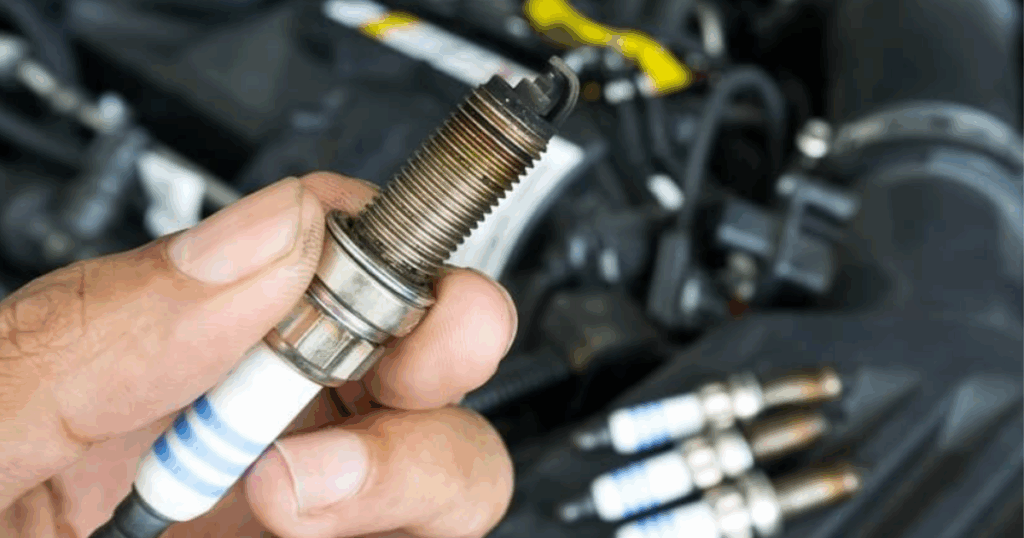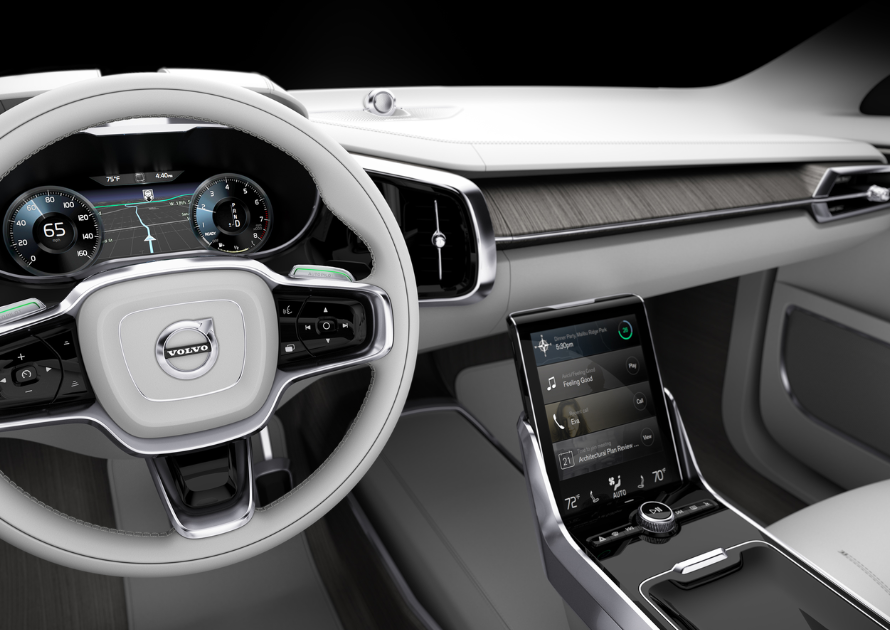Owning a car comes with the responsibility of regular maintenance to ensure it runs smoothly and lasts longer. Neglecting car services can lead to costly repairs and even safety hazards. Whether you drive a brand-new model or a used vehicle, following a proper maintenance schedule is crucial.
This comprehensive guide covers Essential car service tips every car owner should know. From oil changes to tire rotations, we’ll explore the best practices to keep your car in top condition. By following these tips, you can improve fuel efficiency, enhance performance, and avoid unexpected breakdowns.
Importance of Regular Car Maintenance
Regular car maintenance is crucial for keeping your vehicle running smoothly and avoiding costly repairs. A well-maintained car performs better, consumes less fuel, and has a longer lifespan. Simple tasks like checking oil levels, tire pressure, and brake conditions can prevent major breakdowns.
Scheduled servicing ensures that all parts of your car are in good condition. Mechanics can detect minor issues before they become serious problems. Regular maintenance also maintains your car’s resale value. A car with a complete service history attracts more buyers.
- Benefits of regular maintenance:
- Better fuel efficiency
- Improved safety
- Longer engine life
- Higher resale value
Checking and Changing Engine Oil
Engine oil lubricates the moving parts of your engine and prevents overheating. Over time, oil breaks down and becomes less effective. Dirty oil can cause engine wear and reduce performance. Checking your oil level every month is a simple yet important task. If the oil is dark or gritty, it’s time for a change.
Most manufacturers recommend changing the oil every 5,000 to 10,000 kilometers. Synthetic oil lasts longer than conventional oil but still needs regular checks. Always use the oil grade recommended in your car’s manual. Ignoring oil changes can lead to engine damage and expensive repairs. A quick oil change can save you thousands in the long run.
Maintaining Proper Tire Pressure
Tires play a vital role in your car’s safety and fuel efficiency. Underinflated tires increase fuel consumption and wear out faster. Overinflated tires reduce grip and can lead to blowouts. Checking tire pressure monthly is essential. Always measure pressure when tires are cold for accurate readings.
Properly inflated tires improve handling and braking performance. Uneven tire wear indicates alignment or suspension issues. Rotating tires every 10,000 kilometers ensures even wear. Don’t forget to check the spare tire as well. Investing in good-quality tires enhances safety and driving comfort.
- Signs of tire problems:
- Uneven tread wear
- Frequent loss of pressure
- Vibrations while driving
Brake System Inspection
Brakes are one of the most critical safety components in a car. Squeaking or grinding noises indicate worn-out brake pads. Delayed braking response means there may be air in the brake lines. Regular brake inspections prevent accidents and costly repairs. Brake fluid should be checked and replaced every two years.
Worn brake pads damage rotors, leading to expensive replacements. If your car pulls to one side while braking, the calipers may be stuck. A spongy brake pedal suggests air or moisture in the system. Never ignore brake warning lights on the dashboard. Properly functioning brakes ensure safe driving in all conditions.
You can also learn about Most Frequent Audi Body Repair Issues in Dubai
Battery Maintenance and Care
A car battery typically lasts 3-5 years, depending on usage. Corroded terminals can prevent the battery from charging properly. Cleaning terminals with baking soda and water improves conductivity. If your car struggles to start, the battery may be weak. Extreme temperatures affect battery performance.
Regularly check the battery’s voltage with a multimeter. A reading below 12.4 volts indicates a weak battery. Avoid leaving lights or electronics on when the engine is off. Jump-starting a dead battery frequently reduces its lifespan. Replacing the battery before it fails prevents unexpected breakdowns.
Cooling System Checks
The cooling system prevents the engine from overheating. Low coolant levels can cause severe engine damage. Check coolant levels monthly and top up if necessary. The coolant should be changed every 2-3 years to prevent rust and clogging. A leaking radiator or hoses must be repaired immediately.
Overheating can warp engine components and lead to costly repairs. Watch for warning signs like steam from the hood or rising temperature gauges. Using the correct coolant type is essential for optimal performance. Flushing the cooling system removes debris and improves efficiency. Never open the radiator cap when the engine is hot.
Air Filter Replacement
A clean air filter improves engine performance and fuel efficiency. A clogged filter restricts airflow, reducing power. Most manufacturers recommend changing the air filter every 20,000 kilometers. Driving in dusty areas may require more frequent changes. A dirty air filter also increases emissions.
Replacing the air filter is a simple DIY task. Check the filter every few months for dirt buildup. High-performance air filters are reusable but need regular cleaning. A clean filter ensures better combustion and engine longevity. Never ignore a dirty air filter, as it affects overall engine health.
Transmission Fluid Check
Transmission fluid lubricates gears and prevents overheating. Low or dirty fluid causes rough shifting and transmission damage. Check the fluid level monthly using the dipstick. The fluid should be bright red, not dark or burnt. Transmission fluid changes are needed every 50,000-100,000 kilometers.
Ignoring transmission issues leads to expensive repairs or replacements. Leaks should be fixed immediately to avoid fluid loss. Always use the recommended transmission fluid type. A well-maintained transmission ensures smooth gear shifts and better fuel economy. Regular checks extend the transmission’s lifespan.
Power Steering Fluid Maintenance
Power steering fluid ensures smooth and easy steering. Low fluid levels make steering heavy and noisy. Check the fluid reservoir monthly and top up if needed. Leaks in the power steering system must be repaired quickly. Dirty fluid can damage the power steering pump.
Flushing the system every 50,000 kilometers removes contaminants. Using the correct fluid type prevents system damage. Ignoring power steering issues leads to costly repairs. Proper maintenance ensures responsive and safe steering. Always address unusual noises or stiffness in steering immediately.
Checking and Replacing Spark Plugs
Spark plugs ignite the fuel-air mixture in the engine. Worn-out plugs cause misfires and poor fuel economy. Most spark plugs last 50,000-100,000 kilometers. Symptoms of bad plugs include rough idling and difficulty starting. Replacing spark plugs improves engine performance.
Always use the correct spark plug type for your car. DIY replacement is possible with basic tools. Ignoring spark plug issues leads to engine damage. Regular checks ensure efficient combustion and smooth running. Well-maintained spark plugs enhance fuel efficiency and power.

Fuel System Cleaning
Dirty fuel injectors reduce engine performance and fuel efficiency. Fuel system cleaning removes carbon buildup and deposits. Experts recommend cleaning every 30,000 kilometers. Using high-quality fuel prevents injector clogging. A clean fuel system ensures smooth acceleration.
Bad fuel filters restrict fuel flow and damage the engine. Replace the fuel filter as per the manufacturer’s schedule. Fuel additives can help keep the system clean. Regular maintenance prevents costly fuel pump replacements. A well-maintained fuel system improves overall engine health.
Suspension System Inspection
The suspension system ensures a smooth and stable ride. Worn-out shocks or struts cause bouncing and poor handling. Unusual noises over bumps indicate suspension problems. Regular inspections prevent uneven tire wear and accidents. Replacing suspension components improves ride comfort.
- Signs of suspension issues:
- Car leans in corners
- Rough or bumpy ride
- Uneven tire wear
A well-maintained suspension enhances safety and control. Addressing issues early prevents costly repairs. Proper alignment and balancing extend suspension life. Always consult a mechanic for suspension-related problems.
Exhaust System Maintenance
A leaking exhaust system is dangerous and reduces fuel efficiency. Loud noises or fumes inside the car indicate leaks. Rusted or damaged pipes should be replaced immediately. Regular inspections prevent carbon monoxide poisoning. A well-maintained exhaust system improves engine performance.
Catalytic converters should be checked for clogs or damage. Exhaust repairs must be done by professionals. Ignoring exhaust issues leads to failed emissions tests. Proper maintenance ensures compliance with environmental regulations. A healthy exhaust system reduces harmful emissions.
Electrical System Checks
Faulty wiring or blown fuses can cause electrical failures. Dim headlights or flickering dash lights indicate electrical issues. Regularly check battery connections and alternator performance. Faulty electronics affect safety features like ABS and airbags. Professional diagnostics prevent electrical fires.
Always use the correct fuse ratings to avoid damage. Upgrading to LED lights improves visibility and efficiency. Regular maintenance ensures all electrical components function properly. Ignoring electrical problems leads to costly repairs. A well-maintained electrical system enhances car reliability.
Importance of Wheel Alignment
Misaligned wheels cause uneven tire wear and poor handling. Hitting potholes or curbs can knock wheels out of alignment. Symptoms include the car pulling to one side. Alignment should be checked every 20,000 kilometers. Proper alignment improves fuel efficiency and tire life.
- Benefits of wheel alignment:
- Smoother ride
- Better fuel economy
- Extended tire lifespan
Professional alignment ensures precise steering control. Ignoring alignment issues leads to costly tire replacements. Regular checks maintain optimal driving performance. Proper alignment enhances overall safety.
Choosing the Right Service Center
A trusted service center ensures quality repairs and maintenance. Look for certified mechanics with experience in your car model. Reading reviews helps in selecting a reliable workshop. Authorized service centers use genuine parts and follow manufacturer guidelines.
Proton Auto Care in Al Quoz 3, Dubai, offers professional car servicing. They provide comprehensive maintenance, from oil changes to engine diagnostics. Skilled technicians ensure your car receives the best care.
Frequently Asked Questions
1. How often should I service my car?
Most manufacturers recommend servicing every 10,000-15,000 kilometers or annually. Follow your car’s manual for specific intervals.
2. What are the signs of engine trouble?
Common signs include strange noises, smoke, loss of power, and check engine lights. Immediate inspection is necessary.
3. Can I perform basic car maintenance myself?
Yes, tasks like checking oil, tire pressure, and replacing wipers can be done at home. For complex issues, consult a mechanic.
4. Why is my car consuming more fuel than usual?
Possible causes include dirty air filters, low tire pressure, engine issues, or faulty oxygen sensors. A mechanic can diagnose the problem.
Conclusion
Regular car maintenance is key to ensuring safety, performance, and longevity. Simple checks like oil levels, tire pressure, and brake conditions prevent major breakdowns. Following the manufacturer’s service schedule keeps your car running smoothly. Choosing a reliable service center like Proton Auto Care in Al Quoz 3, Dubai, guarantees professional care.
Investing in preventive maintenance saves money in the long run. A well-maintained car offers better fuel efficiency, reliability, and resale value. Never ignore warning signs like strange noises or dashboard alerts. By following these essential tips, you can enjoy a smooth and trouble-free driving experience for years to come.


